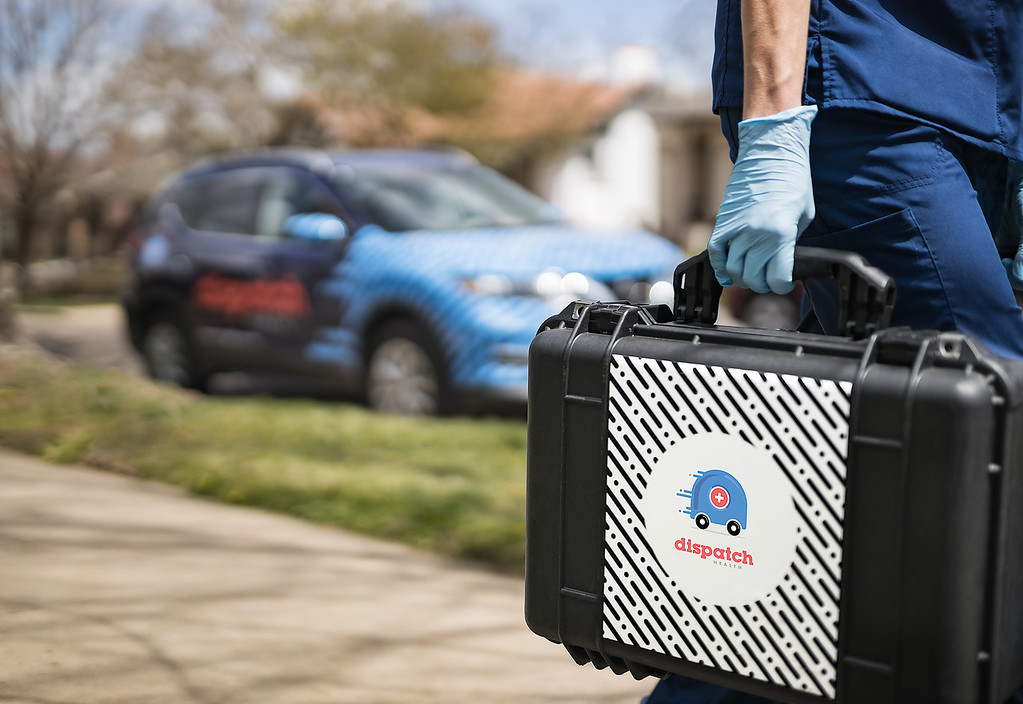
At-home care startup Dispatch Health raised $200 million in funding. The startup plans to use the funds to expand from the 31 markets where it currently works to 100.
“We felt like there was a readiness for expansion and receptivity by the market that prompted us to raise this capital,” CEO Dr. Mark Prather said in a phone interview.
Tiger Global led the series D round, with participation from previous investors including Humana and Oak HC/FT. The funding round would give DispatchHealth a valuation of more than $1.7 billion, according to the company.
The Denver-based startup, founded in 2013, offers in-home urgent care and hospital-at-home programs. For example, a physician assistant or nurse practitioner is dispatched to patient’s homes to prevent costly trips to the emergency room. In other cases, patients who might otherwise be hospitalized receive treatment and daily rounding at home.
The company recently struck a partnership with Humana to cover its hospital-at-home services for patients in Denver and Tacoma, Washington. They visit patients that would normally meet the criteria for a hospital admission, and see if they would be able to receive care at home. Patients are monitored remotely, have daily visits and an emergency call button.
For example, they might evaluate a patient with COPD who is feeling short of breath, has a cough and a fever. They could administer IV antibiotics, or even conduct an x-ray to see is she has pneumonia at home, Prather said.

A Deep-dive Into Specialty Pharma
A specialty drug is a class of prescription medications used to treat complex, chronic or rare medical conditions. Although this classification was originally intended to define the treatment of rare, also termed “orphan” diseases, affecting fewer than 200,000 people in the US, more recently, specialty drugs have emerged as the cornerstone of treatment for chronic and complex diseases such as cancer, autoimmune conditions, diabetes, hepatitis C, and HIV/AIDS.
To check if a patient would be a candidate for advanced care, they would use a scoring system to ensure she wouldn’t need to be admitted to the ICU. They also consider the patient’s home.
“Is there running water? Is there heat if it’s cold? If all of those boxes are checked and she’s a Humana patient, we’d call our mobile hospitalist team and say do you think this patient is appropriate for in-home hospitalization?” he said.
Although there was a growing interest before the pandemic, Covid-19 and subsequent regulatory changes pushed more health systems to find ways to offer in-home care.
In November, the Centers for Medicare and Medicaid Services recently moved to expand coverage of hospital-at-home programs, which would allow Medicare to cover in-home care for more than 60 different conditions.
“Managing through the pandemic has been a challenge for every front-line provider, ourselves included,” Prather said. “Once we secured the appropriate proper protective equipment and doubled down on our infectious disease protocols, we were leveraged during the height of infectious disease to really tackle that high medical needs patient that if they had been exposed to Covid, would have left them at significant risk.”
Photo credit: DispatchHealth












